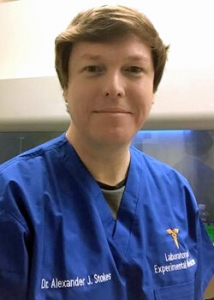
Teaching critical data science skills to a broad group of students is the focus of a University of Hawaiʻi project that just received a $300,000 grant from the National Science Foundation (NSF). The John A. Burns School of Medicine (JABSOM) and the Hawaiʻi Data Science Institute (HI–DSI) announced the award for the two-year project entitled “JADE-Justice-oriented Approaches to Data Science Education.”
“Data science skills are going to be critical for the jobs of the future. Whether that job is in healthcare, in finance or fighting climate change, data science will be a component of day-to-day employment, in the same way that word processing and spreadsheets became essential 30 years ago,” said Principal Investigator Alexander Stokes, JABSOM assistant professor of cell and molecular biology and affiliated faculty with HI–DSI. “This award focuses on developing these skills in the widest possible group of students, especially those who are not in traditional computer science undergraduate or graduate programs. This NSF-funded research will look at new teaching methods to engage a wide cross-section of students in data science training and research. We want to enrich their undergraduate or graduate experience, and arm them with skills and experiences that give them a competitive edge in tomorrow’s job market.”
HI–DSI Co-Director Gwen Jacobs said, “We are celebrating this award to Dr. Stokes, who is an excellent example of our ‘virtual institute’ model at HI–DSI, where we invite faculty from a broad range of scientific domains across UH to enrich their research and teaching with data science approaches. As a HI–DSI member, Alex started using advanced data science approaches to identify new or understudied therapeutic targets for heart and other diseases and then started exploring the integration of data science and analytics into teaching. This is a highly competitive award that reflects NSF investment both in a research program and an individual who is a future leader in STEM education and research.”
The JADE award will support research on data science pedagogy and directly links to Gov. David Ige’s Digital Economy vision and the NSF 10 Big Ideas focus area of “Harnessing the Data Revolution” to strengthen science, technology and the economy.
“A digital economy recognizes that data are everywhere,” Stokes said. “As a university, and a state, we need to make sure that the analysts, engineers, physicians, nurses, entrepreneurs, climate scientists, journalists, etc., that we are training, have the skills to enhance their field through data-driven decision making.”
Camaron Miyamoto, director of the LGBTQ+ Center at UH Mānoa, who supported the grant’s design and submission, said the award is also fundamentally about equity.
“Alex is looking at inclusive pedagogy in data science, not only for students outside traditional computer sciences, but importantly asking how we reach and include groups who have been historically excluded and marginalized in STEM.” Miyamoto said. “Alex believes that focusing students on social justice issues in their research projects and involving them in wrangling data that can be used to effect social change, will resonate with under-represented students including BIPOC (Black, Indigenous, People of Color) and LGBTQIA+ (lesbian, gay, bisexual, transgender, queer/questioning one’s sexual or gender identity, intersex and asexual/aromantic/agender) participants.”

